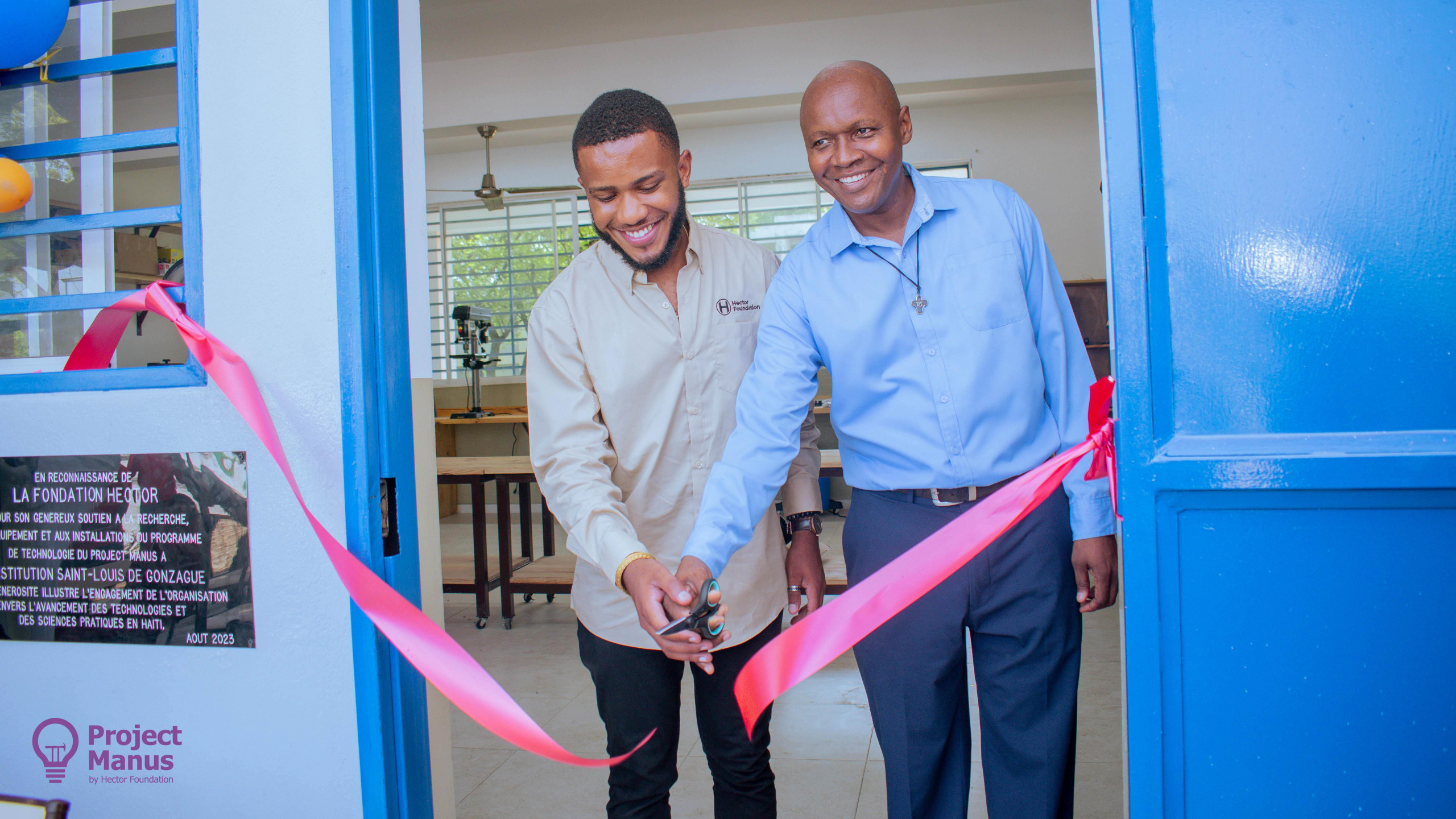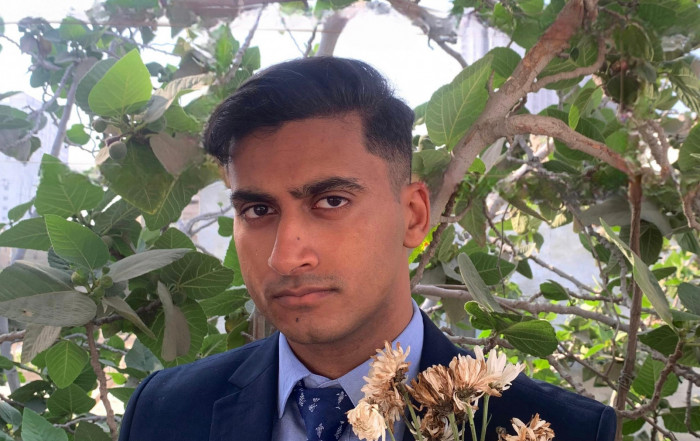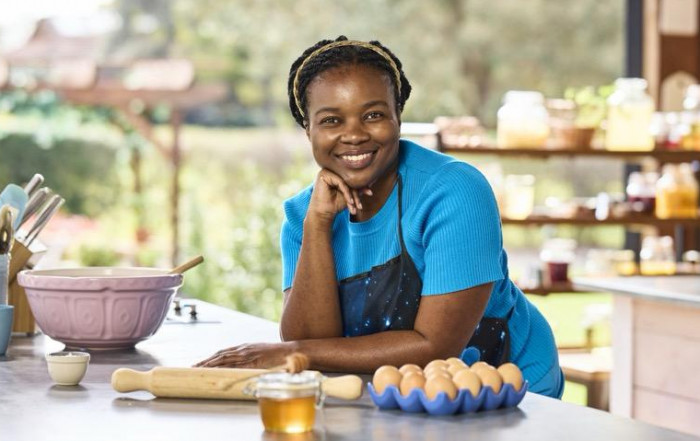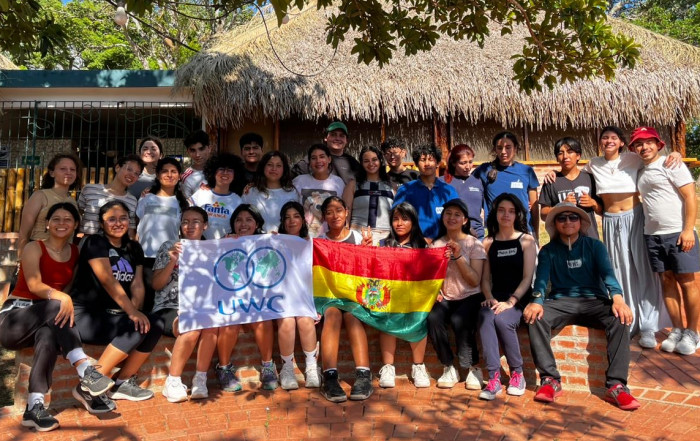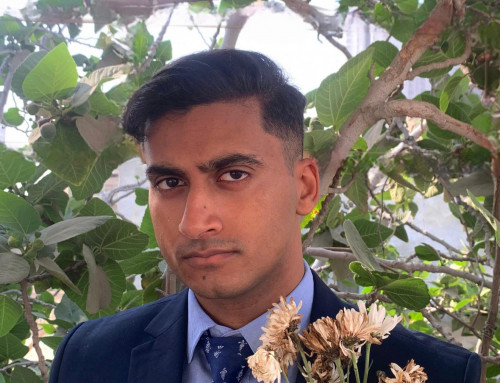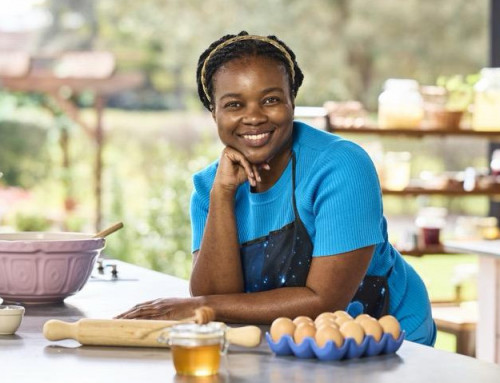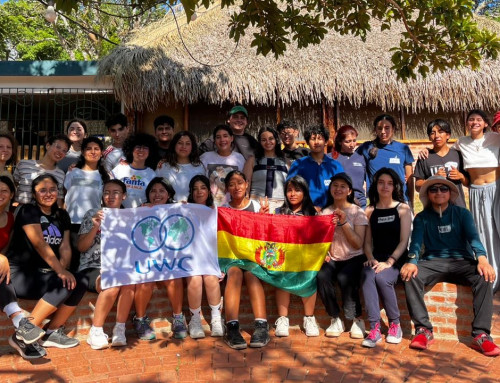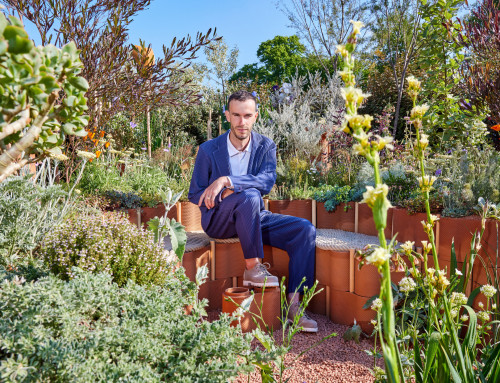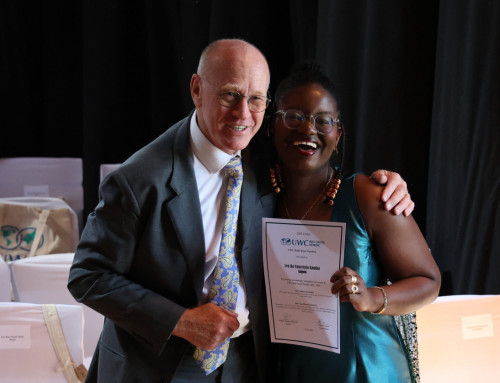Meet Wilhem Hector, originally from Haiti, who embarked on a journey to UWC Red Cross Nordic. With little prior knowledge of Norway, he undertook a leap of faith, leaving behind the warmth of his homeland for the everlasting weather of Flekke.
Can you tell us about your arrival at RCN? How did it feel to land in Bergen or Oslo, sit on the bus, see the Flekke sign, and arrive on campus?
This was very interesting. Before arriving at RCN, I had little to no knowledge about Norway. I’m originally from Haiti, and for the selection process, we did different projects for the national committee to get a sense of your values and how you engage with people that are different from you. At the very end, if you’re selected, you will be paired with the specific UWC. So then, I had to google RCN, and I saw snow. I was quite scared in the beginning. That was the first time I was leaving Haiti and going somewhere so geographically different from home. It was quite a leap of faith. Even though I did not know where I was going, I knew any road would take me in the right direction. So, I went to RCN with quite a strong, positive mindset. “This was going to be the best thing for me.”
The funny thing is that there was a mistake in the system, W4, and my name showed as Hector Hector. I put Wilhem as my first name, and Hector as my last name, but I also put Hector as my preferred name, anyways it was a running joke. It was late afternoon when we arrived on campus and my roommate Ryan Rabbani, gathered a group of students to welcome me by calling Hector, Hector. I did not know where I arrived, but I knew this place would be a new home. They gave me the warmest welcome and didn’t even know me. From day one, I knew that the warmth of RCN was something else. People are willing to cherish you even though you come from completely different walks of life. I thought to myself, this is the energy I want to give. This positive energy made me feel welcome and brought the whole community together. The sense of community, regardless of diverse backgrounds, inspired me to reciprocate the positive energy and foster unity among my peers.
If you could describe your experience at RCN in three words, how would you do it?
RCN has helped me grow in so many ways. So, I would say, the first one is growth. I’ve gone from a conservative country in general and then went on to live in one of the world’s most diverse places. My idea of the world changed a lot. My idea of people and how to coexist, respect, and empathize with others changed a lot. This is one of the things I’m most grateful for. After leaving RCN, I was confident I could start calling myself a global citizen. I could live anywhere and engage and help anybody discover the story of my country through my narrative. But also, I could discover anybody’s story and really be respectful and mindful. This is the type of growth that could only happen at RCN. Growing up in Haiti, where we’re very conservative and very religious, it was difficult to accept anything that is beyond what is thought to be right. The growth I experienced during and after RCN really served me a lot and set me off for the better because now I can really live anywhere. So, I would say, growth is the first word to describe my RCN experience.
The second word I would pick is self-awareness. I started the Hector Foundation 2 weeks after I got to RCN. The whole idea of the Hector Foundation is completely inspired by RCN. During the Red Cross workshop, the Vacation for All programs was mentioned. That same night I started writing fundamental principles of the Hector Foundation and what we would aim at doing in Haiti. Without RCN, there would not be the Hector Foundation. There wouldn’t be that vision of trying to use education to make Haiti a better place. RCN has given me that sense of purpose in knowing that I could be a changemaker at any level, whether it was at the micro level or the other at the macro level, I could really start doing the smallest thing and impact the communities in ways that I did not know I could before. And that self-awareness was the basis of seeing public service as a lifestyle where I don’t need to be established, have a job, and start doing philanthropy. You can really start while being young and broke. I was still a high school student with no resources and still trying to do those projects. So, I think that spirit of contributing in ways you can was the self-awareness I didn’t have so that really shifted me in the right direction. So far, we have grown and become more self-aware. I don’t want to be cliche, but it really got to be the friendships I built at RCN. The pictures I have on my room wall are my family and my friends from RCN. It is my RCN memory stack wall. The friendships I have built are real and still there. I can travel to any country I want, and I don’t have to think about housing. I lived in Denmark in 2022 with my former roommate. I stayed at his place, met his parents, and he, you know, he essentially took care of me. He gave me a bike, and I lived there all summer. I didn’t have to worry about anything. I can go to California or South Africa, and someone will welcome me. These friendships go beyond everything. The connections made are strong, and they keep on living. So, I would say, growth, self-awareness, and the diverse friendships that I’ve built are the 3 words to describe my RCN experience.
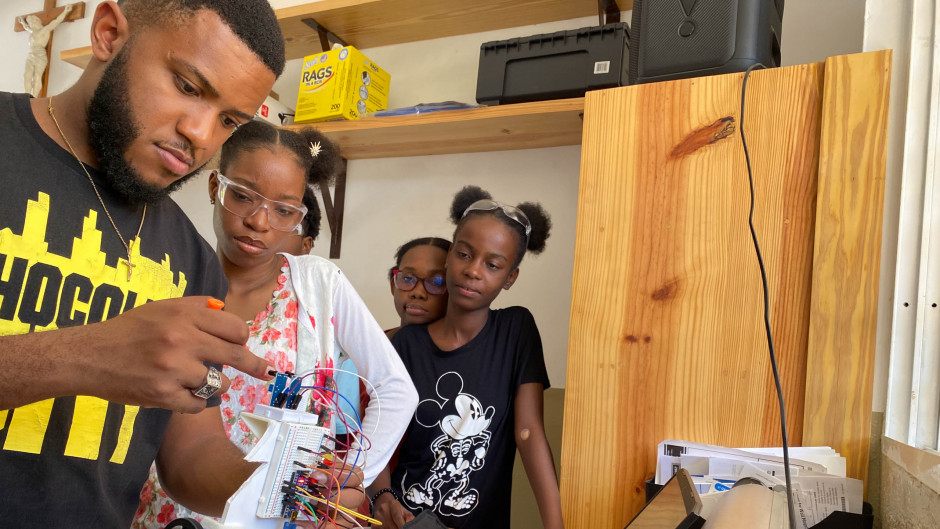
During your time at RCN, you saw the power of change and the impact it can have. Could you tell us more about the Hector Foundation and what impact it has?
The idea came from the Red Cross workshop, where they discussed the Vacation for All program in Norway. It is a summer program for the kids across Norway who wouldn’t have anything to do over the summer and would not have stories to tell when school starts. And I was thinking about this during the entire workshop. I was like, Wow, this was literally just me in Haiti. When it’s summertime, you just sit at home, don’t do anything productively, and then go back to school. You have no stories to tell, no vacation highlights. After the workshop, I saw Daniel right outside of the K Building, where he encouraged me to write it down. This is where the idea for the Hector Foundation came from.
I wanted to create a summer program that could give students a story to tell and allow them to grow in some way during summer. It all started by writing it down. We wanted to bring students across the country on a campus. Big idea! We had no money. Then Covid happened, which was probably the best thing to have happened to the foundation. Our initial idea was too big and it would probably have failed. We had to pivot to an online program instead. A The support from a Haitian telephone company made this possible. They donated tablets and power banks for those who did not have access to electricity and internet. We completed the first edition of the summer program in 2020 with 20 students.
At that point, the idea was just a summer program. It was great. People loved it. Then we started thinking about how this could grow. Maybe we were going to run it again. And the idea, the structures of the foundation, started building. Our vision of using education to make Haiti a country for all was formed.
The program really became an intensive and really rewarding experience for the students. So then, we kind of built it up. The project is now called the Program for the Advancement of Young Scholars (PAYS). And now, since 2020, we’ve doubled the amount of student intake. We take 40 students each year. In total, we’ve had over 120 students during 4 editions of the program, and over 35% of these students, after they’ve gone to our program, have gotten scholarships to study in the USA, in Canada, in Germany, and lots of them get admitted into UWC afterward. We’ve had quite a high success rate with that project for the past 4 years. And we also take pride in that 65% of the students we admit are girls. Each year, the program evolves and grows.
Last year, we decided to dive into a second venture. At MIT, I was doing a lot of practical science and was unprepared for that. The lack of practical science experience inspired Project Manus, which is essentially like a maker space that is equipped with international standard engineering equipment, where students can come in and do robotics and engineering and apply science knowledge. We raised about $30,000 last year to build the space and managed to build it. The Project Manus was inaugurated last August, and the goal of the space is to provide a hub for all students to come and do robotics and do practical science. The very first Robotics training camp was this January, and we are hoping that we can run the robotics training camp on a bi-weekly basis. The fundamental purpose behind the Hector Foundation is to create educational opportunities and hope that by creating educational opportunities, we’re going to make Haiti a country for all people.
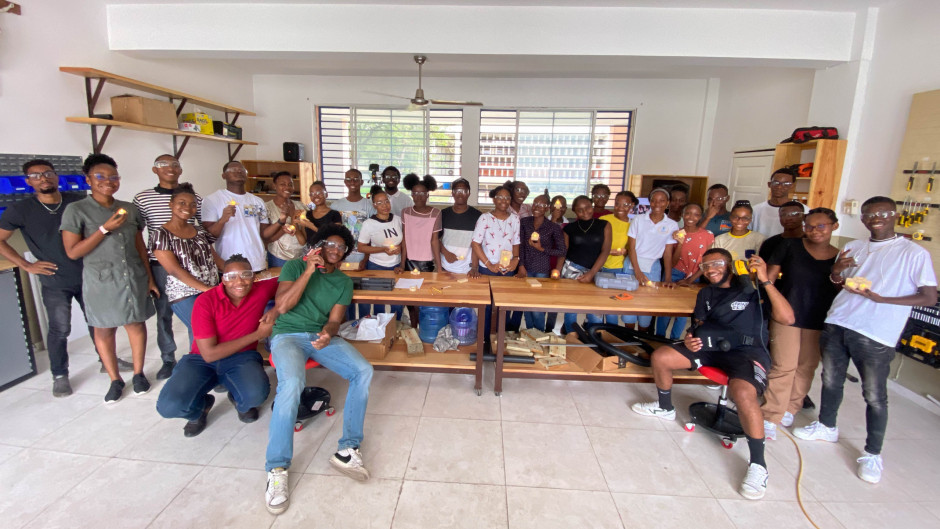
Part of the funding for the Manus Project came from the Davis Projects for Peace. Can you tell us a bit more about that?
Davis Foundation provides a grant of 10,000 for projects that foster peace in a community of the world. You would typically apply to your college or university for the school selection process, and then once you get selected for the school project, you proceed to compete on the national level. So, I applied last year and won the project for MIT, and also on the national level. I won the $10,000 grant, which contributed towards the 30,000 that I was speaking about to build the maker space. We thought of the idea of having a maker space and being able to offer opportunities to students from different layers of society. Whether rich or poor, you can come to space and do practical science at the same level as everybody else. We thought that was like a peacekeeping chain, because we were essentially offering some alternative to gang violence to young people in Haiti. So instead of joining a gang, maybe you can come to our maker space, and we will teach you how to make chairs. We’re going to teach you how to make robots. These ideas are combined with the Hector Foundation’s mission to provide education for all and promote peace in Haiti.
What would be your advice for all UWC and RCN alumni who are in a position to apply for the Davis Projects for Peace?
That’s something that I’ve been thinking about quite a lot recently. I often hear my peers express their frustration with the challenges that come with being a full-time student and being away from home and trying to do something at home. As you can imagine, it takes energy and time because you’re already so busy with college. One thing that I realized was that being a full-time student benefits one’s public service endeavors because the environment in which you are in is already so resourceful. You must only channel those resources to the communities where they are most needed, and resources like the Davis just exist there for you. You have nothing to lose to put in an application and channel those resources to something that can impact your community. In general, I would say to the UWC students to think about how to make public service a way of life. The public service is not a side quest. You can organically integrate it into your life. Maybe you pick a project that’s directly aligned with your field of study, or maybe you do something that you’re extremely passionate about such that it doesn’t even feel like work.
I’ve worked on Project Manus consistently for 17 months, starting from March 2022, and we inaugurated it all the way in August 2023. The vision for Project Manus did not just happen, it took time. As a freshman, I knew that I wanted to apply to Davis Projects for Peace, but I didn’t think that I had the project that was good enough. So, I told myself I was just going to let myself be inspired and something would come up. Then the Project Manus idea came about, and I nurtured it. I didn’t apply to the Davis Peace Project until 2023. I was building something that was directly related to my major. I was building a makerspace similar to these where I spent most of my time at MIT. This opportunity allowed me to enhance my design skills and learn about different tools.
I integrated this project into my life organically. By the time I applied, it was just a natural process. My advice in general is to try to think of public service as a lifestyle. It is not a site quest, and try to implement it in your life. The last piece of advice is that it’s fun to succeed and see your hard work paying off.
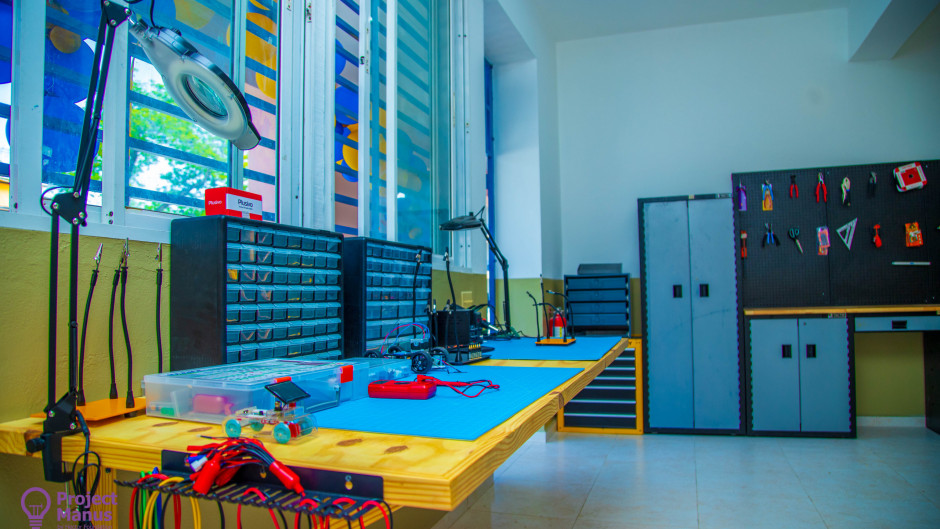
What is next for Wilhem Hector? Where do you see yourself in the future?
I’m a mechanical engineering student with a passion for wind energy. This was another thing I picked up at RCN. Before I got to RCN, I had no idea what renewable energy was, and it was one of the topics of global concern. So, I decided to build a mini wind turbine and did a demonstration about wind energy at RCN, and that’s where my passion came in. I did my extended essay modeling wind energy. My current research at MIT is in wind energy modeling. Energy is like everything I’ve done since I left RCN. This is my passion. I want to work in the wind energy sector down the line. However, I would like to go to grad school to pursue a master’s degree in wind energy technology. I don’t know where that would be yet. I want to grow as a renewable energy expert to potentially advance the energy sector in my country and the Caribbean region.
Public service is my lifestyle, and I will always continue the work that the Hector Foundation is doing. We’re trying to stay grounded. We recently drafted a 5-year sustainability plan. And we’re starting to think about what we can do now such that when we can no longer run the foundation, it can still sustain itself. We’re trying to bring in new directors. We are trying to make the programs as mature as possible and obviously try to sustain funding so that I can take a step back from being the operator to being more like a director setting the organization’s vision.
Do you have any advice for the graduating class, as they are about to start IB exams and become part of the RCN alumni community?
For anyone worried, you are going to be just fine. For me, leaving RCN was quite daunting. I thought I essentially had to start from scratch. I would have to go again and say – Hey, where are you from? However, I managed to find my community in the US and build strong relationships with the people here. One thing that students can rest assured is that the next step for them, whatever it may be, is going to be fine. Even if you don’t know where you’re going, any road will take you in the right direction, so you just hop on the next ride, and it will be just fine.
The second piece of advice is never to forget the roots and the values you already have. Your values will sound loud in whatever community they will come into. The world of Flekke is clean and respectable, but the world outside can be dirty. There are a lot of bad things happening. Bring your values because then your voice can be loud in a world that’s doing all the wrong things. Inspire people and show them the good and strength of diversity. Do not let go of these values and principles. Those are my 2 pieces of advice for the graduating class.
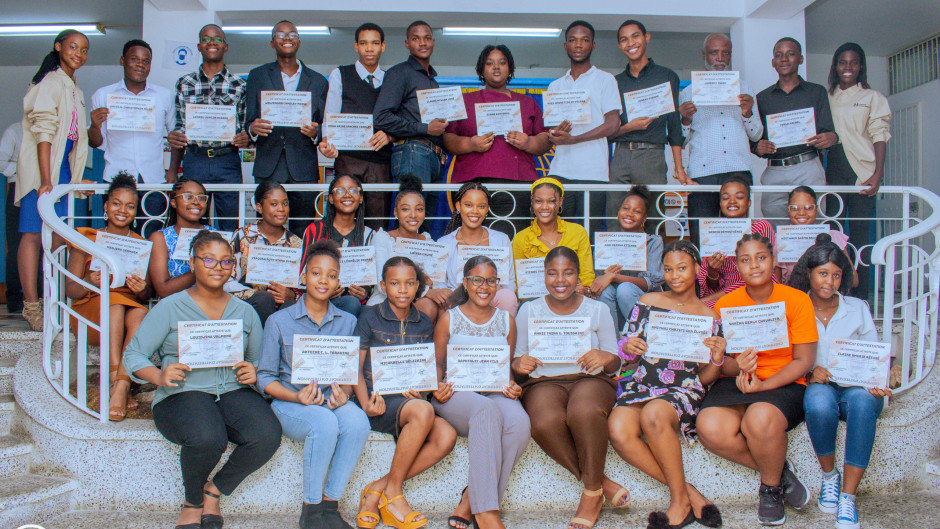
In People of UWCRCN you find stories of alumni or other members of our community. Here are the laterst.
Hamza Jalil Albasit, RCN’16
We’re proud to spotlight Hamza Jalil Albasit (RCN ’16) from Pakistan, whose debut novel, The Oracle of Hate, has just been published across South Asia. Set in the haunting [...]
Melisa Gondo Chilimanzi, RCN ’12
Today, we’re thrilled to introduce Melisa Gondo Chilimanzi (RCN '12), a recent contestant on The Great Australian Bake Off. Melisa’s journey to the Bake Off Shed has been [...]
Erick Bruckner Iriarte, RCN’21
Arriving at UWC Red Cross Nordic was a life-changing experience for me. At 16, with only a slight idea of how to speak English, I attended the school’s [...]

